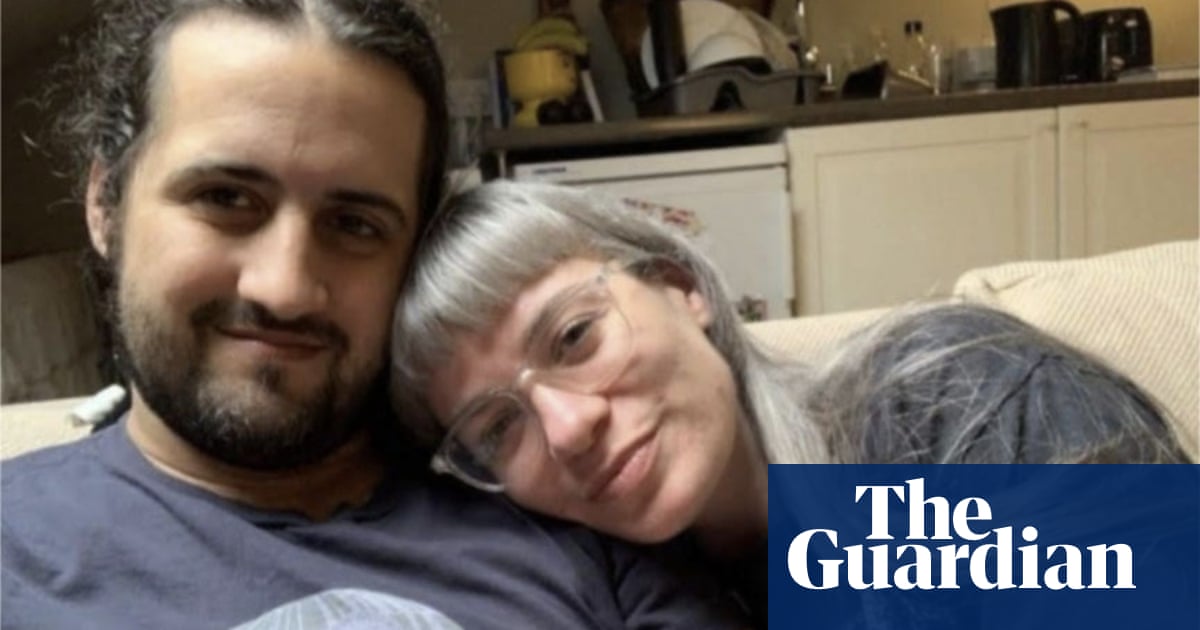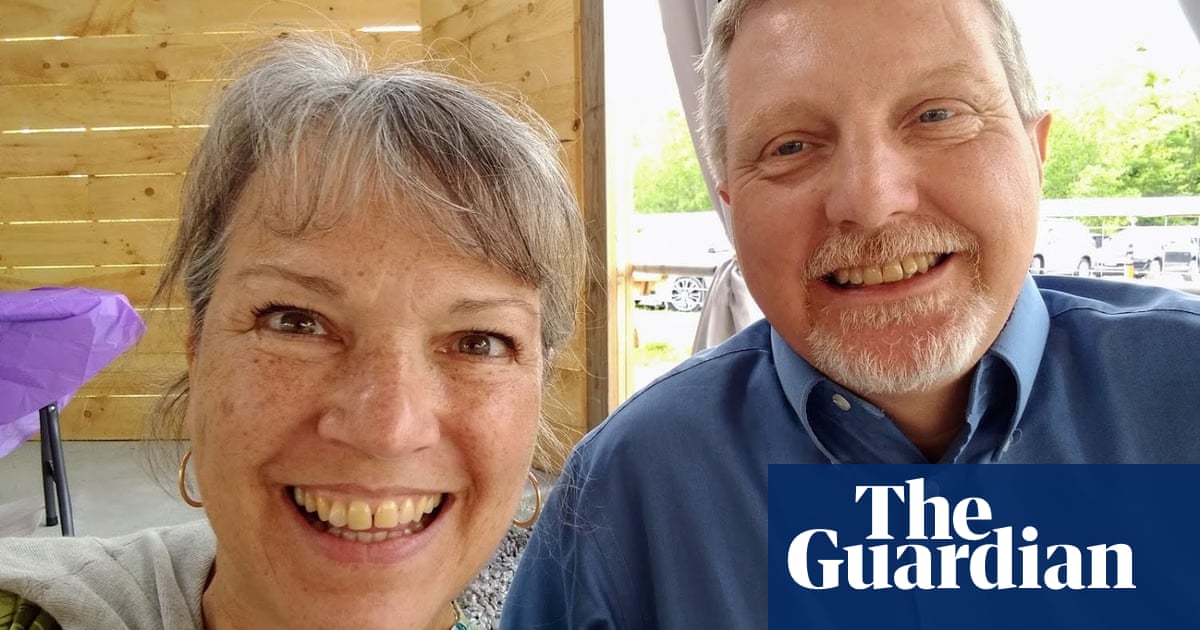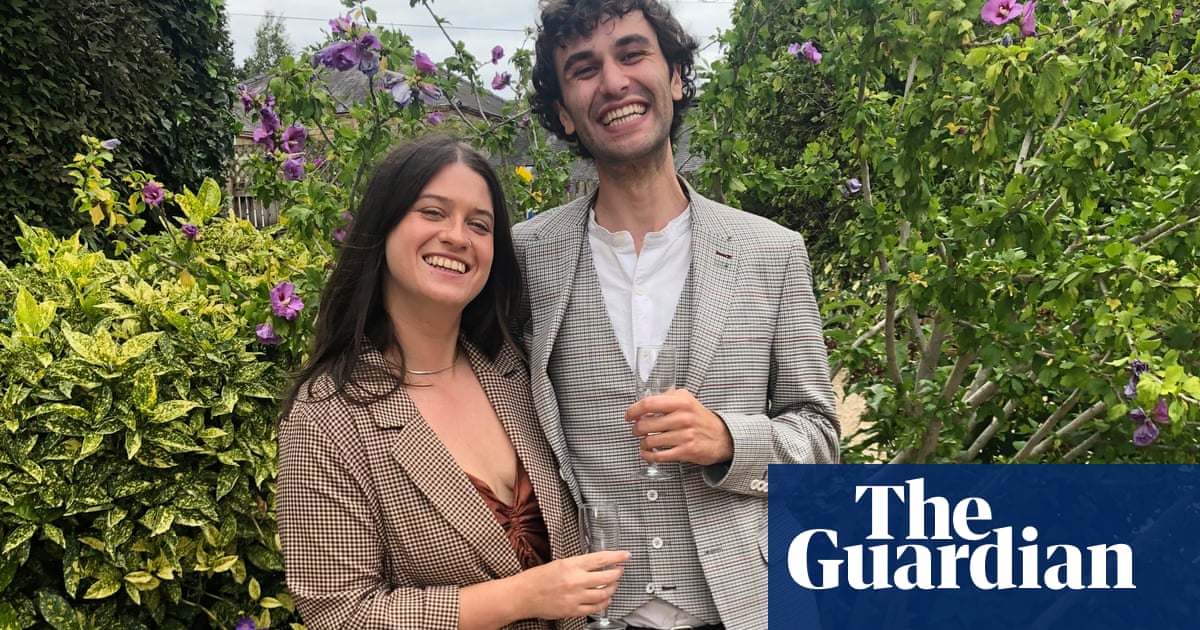
lice Granville was in her final year of university in August 1990 when she met a friend for dinner. “Her husband was meant to join us with one of his friends, and he was going to be my blind date,” she says. However, the two men were late, so Alice and her friend continued to drink in the bar. Ian, who was out with friends enjoying the live music, spotted her from across the room. “She caught my eye and I smiled shyly,” he remembers. Alice and her friend gave up waiting for their dates and moved into the restaurant dining room. “I noticed she’d disappeared, and I had this really strong feeling of missed opportunity. My friends were completely unaware,” says Ian.
He knew she had either left or gone for dinner, so he suggested that he and his party had something to eat. As it was getting late, the restaurant was emptying out and they were seated quickly. “Of course, we were far away from the two girls,” he says. “I was half looking at the menu, half wondering how I could meet her.”
Luck was on his side when Alice walked past his table to go to the bathroom. “I saw him smiling at me and smiled back,” she says. On her return he jumped up and tapped her on the shoulder. “He said I was one of the nicest girls he’d ever seen and that he’d love to take me out,” she laughs. “I could tell it was out of character as he looked quite awkward.”
They began chatting, and discovered they were at the same university. “He asked if we wanted to sit with him, and the waiter moved our food over.” Although Alice and Ian were getting on really well, her friend wanted to leave. “She was annoyed with her husband for not showing up and wanted to go out partying.” Before they left, she and Ian exchanged contact details, including her address.
The following day, he dropped in to see her. “He’d promised his mum he’d be back for Sunday lunch, but we ended up chatting for hours, and he missed it,” says Alice. The next week, he came back to ask her out again. “We went on a picnic to the botanic gardens, and the following week she met my parents,” he says. The relationship moved quickly, and by the end of January 1991, they were engaged. They married in August, a year after they first met.
The couple finished their studies and found jobs in the city, Alice as an executive secretary and Ian working in architecture. Then in 1996, they moved out to the South African province of Mpumalanga, near Kruger national park, where Alice’s parents owned a farm. “It was never in our plans, but we wanted to start a family and thought it would be a great place to raise children,” she says. “It was a bit of a gamble because I knew nothing about farming at the time,” adds Ian. When they arrived, Alice realised she was pregnant. They now have three children, born in 1996, 1999 and 2003.
As well as having her family around, Ian’s parents also moved out to the farm. “At one stage, we had both sets of grandparents, as well as cousins, aunts and uncles all living on this rural farm community,” says Ian. When they’re not busy working together, the couple love cooking and share a passion for good food. “We like doing different creative activities in the same space,” says Alice. “I might be cooking or sewing while Ian is gardening. It has been easy in lockdown, as our lives haven’t changed drastically.”
Ian appreciates his wife’s stabilising influence. “I had a conservative upbringing and one of the things I noticed about Alice was her ability to communicate and have meaningful conversations with her family,” he says. “She is also very solid and consistent. What you see is what you get. Once a little girl on our street said: ‘Home is where Alice is,’ and that sums up how I feel.” Alice loves Ian’s creativity. “He’s gentle and sensitive. I’ve never liked macho men. I feel very appreciated by him and I’m even more in love now than I was 30 years ago.”












